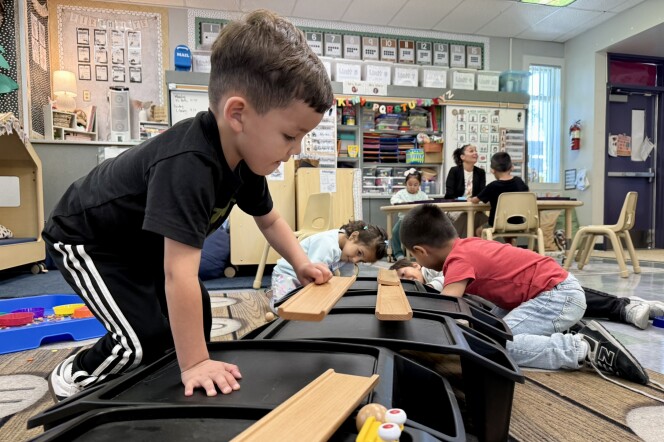With our free press under threat and federal funding for public media gone, your support matters more than ever. Help keep the LAist newsroom strong, become a monthly member or increase your support today.
There are now safety guidelines for people who hire domestic workers in California
ARI SHAPIRO, HOST:
New safety guidelines published in California are the first in the nation that specifically cover domestic workers. House cleaners, nannies and home care aides have historically been excluded from labor laws protecting most employees. From member station KQED, Farida Jhabvala Romero explains.
FARIDA JHABVALA ROMERO, BYLINE: About a week after a massive wildfire tore through parts of Santa Rosa in 2017, Socorro Diaz got a call from one of her clients. They asked her to clean their home, still standing in an otherwise incinerated neighborhood.
SOCORRO DIAZ: (Speaking Spanish).
ROMERO: When Diaz arrived, she found the house full of ash. After days of handling and breathing in the residue without a proper mask or gloves, she says her skin itched. Her head hurt. Her nose bled.
DIAZ: (Speaking Spanish).
ROMERO: Diaz says she doesn't fault her employers. She figures they didn't know about the dangers. In California, employers of the state's 360,000 domestic workers are not obligated to take steps to keep workers safe. These mostly immigrant women often report getting hurt or sick on the job from things like toxic cleaning chemicals or contagious illnesses. But occupational safety and health regulators say the state's labor code gives them jurisdiction over most workers except for those in household domestic service. There are a couple of reasons why.
EILEEN BORIS: First was the legacy of slavery, in which women of African descent were defined as domestic workers and did not need to be paid.
ROMERO: Professor Eileen Boris studies the history of domestic workers and teaches at the University of California Santa Barbara.
BORIS: Second, this is considered work that is the obligations of wives, mothers and daughters, so why should it be paid or considered worthy work?
ROMERO: Boris hires a housecleaner herself. She also served on a statewide committee including workers and experts that developed voluntary safety guidelines for the home as a workplace. They recommend, among other things, employers not ask domestic workers to clean wildfire ash, fix roofs or do any work that requires specialized equipment or training. Also, label toxic substances in a language the worker understands. Boris says these recommendations are good for everybody.
BORIS: These are not anti-employer guidelines. These guidelines are to make a safe home space for all who live or work within.
ROMERO: But these best practices are voluntary. In 2020, California Governor Gavin Newsom vetoed a bill that would have required the state to extend health and safety protections to domestic workers. In his veto message, Newsom argued homes are different from most workplaces, and the proposed legislation would be too onerous. State Senator Richard Pan had other concerns.
RICHARD PAN: Recognizing that this workplace is also someone's residence and there may be some privacy, other types of issues involved in terms of having inspectors or someone going into the home...
ROMERO: Worker advocates counter any future rules could address those concerns and that the new guidelines are a critical step toward racial and gender equity. Los Angeles State Senator Maria Elena Durazo plans to introduce legislation later this month that would end the exclusion of domestic workers from workplace protections.
MARIA ELENA DURAZO: We have to adjust. We can't be living in the past, and this is definitely a legacy of slavery.
ROMERO: Now that a building block has been laid with the voluntary guidelines, Durazo says her bill has a better chance of getting signed into law. For NPR News, I'm Farida Jhabvala Romero in Oakland.
(SOUNDBITE OF NXWORRIES SONG, "WHERE I GO FEAT. H.E.R.") Transcript provided by NPR, Copyright NPR.







